Press and News Ground-breaking new genebank unveiled in Colombia to help climate proof food systems across the tropics
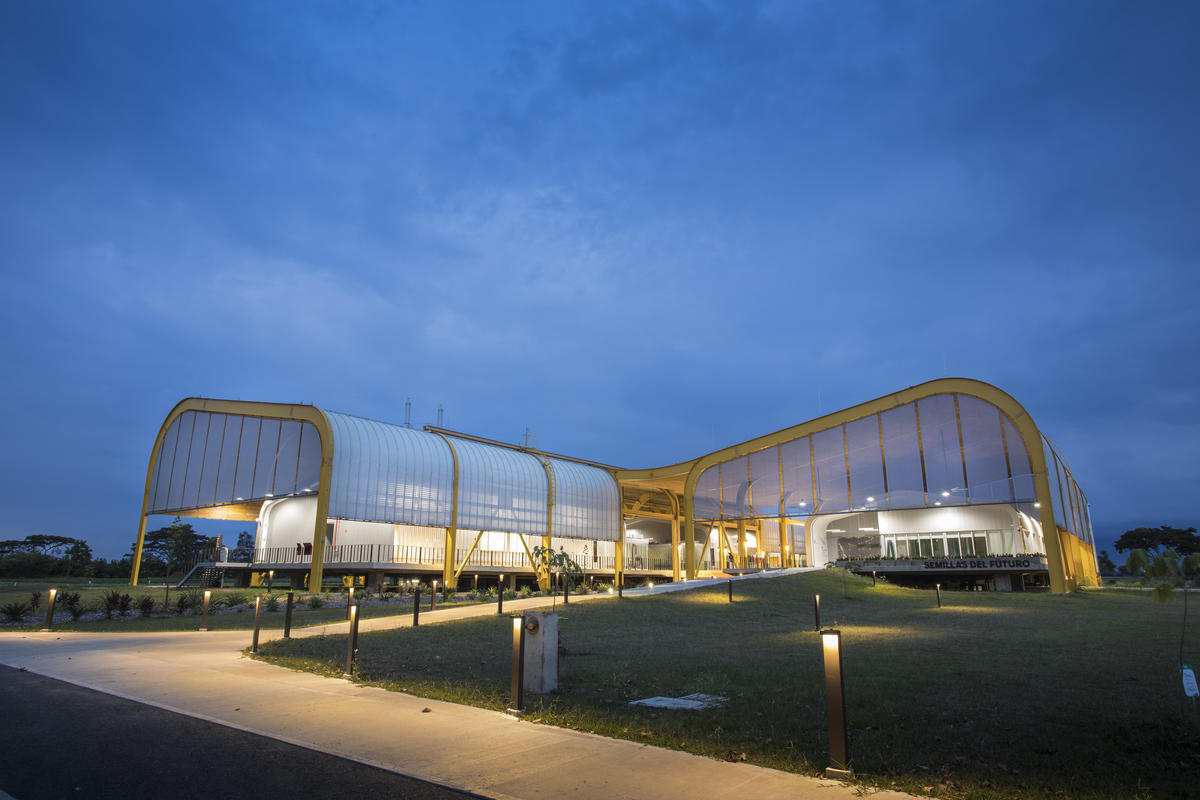
Colombian President Iván Duque Márquez led the official inauguration of the state-of-the-art “Future Seeds” facility, which uses AI and cryopreservation for crop conservation.
The world’s largest genetic library for beans, cassava and tropical forages has been officially opened in Colombia to preserve plant biodiversity and support cutting-edge agricultural research.
The Future Seeds genebank, situated near Cali, provides long-term conservation of the world’s largest collections of crops, including two of the most important staples in the Global South along with the plants eaten by livestock.
The facility, managed by CGIAR’s Alliance of Bioversity International and the International Center for Tropical Agriculture (CIAT), also provides plant genetic material free of charge for researchers to breed new varieties that can withstand the impacts of rising temperatures and extreme weather conditions. Climate change alone is predicted to continue reducing crop productivity by an estimated five per cent for every degree of warming above historical levels.
Future Seeds builds upon the Alliance’s decades-long record of maintaining global collections of tens of thousands of varieties of crops, which had outgrown its capacity. The collection includes more than 37,000 samples of beans from 114 countries, 6,000 cassava samples from 28 countries and 22,600 samples of tropical forages from 75 countries. Ranging from grasses to trees, forages are critical to smallholder livestock farmers across the globe.
The new building, which offers 30% more storage space and incorporates solar energy, thermal control and rainwater harvesting, could become - if the application is successful -the first genebank in the world to meet the criteria for platinum-level Leadership in Energy and Environmental Design (LEED) certification.
Related infrastructure includes robotics, drones and artificial intelligence to accelerate the analysis of crops to help scientists identify and incorporate traits into new varieties that can better cope with extreme conditions.
The inauguration ceremony of Future Seeds
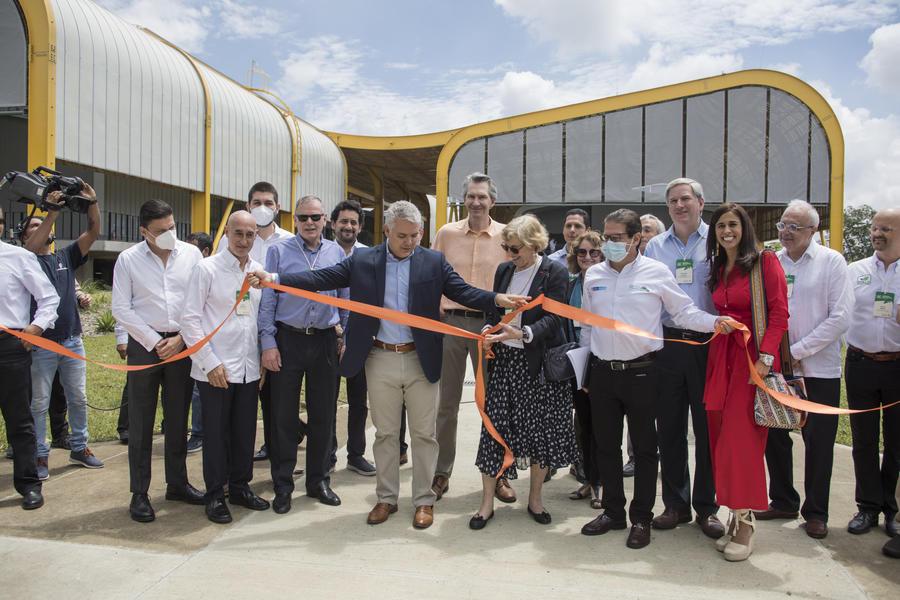
Iván Duque Márquez, President of Colombia, inaugurates the genebank Future Seeds

Iván Duque Márquez, President of Colombia, Rodolfo Zea Navarro, Minister of Agriculture and Rural Development of Colombia, Juan Lucas Restrepo, Global Director for Partnerships & Advocacy, CGIAR / Director General Alliance of Bioversity International and CIAT, Julia Marton, Chair, Alliance Board of Trustees
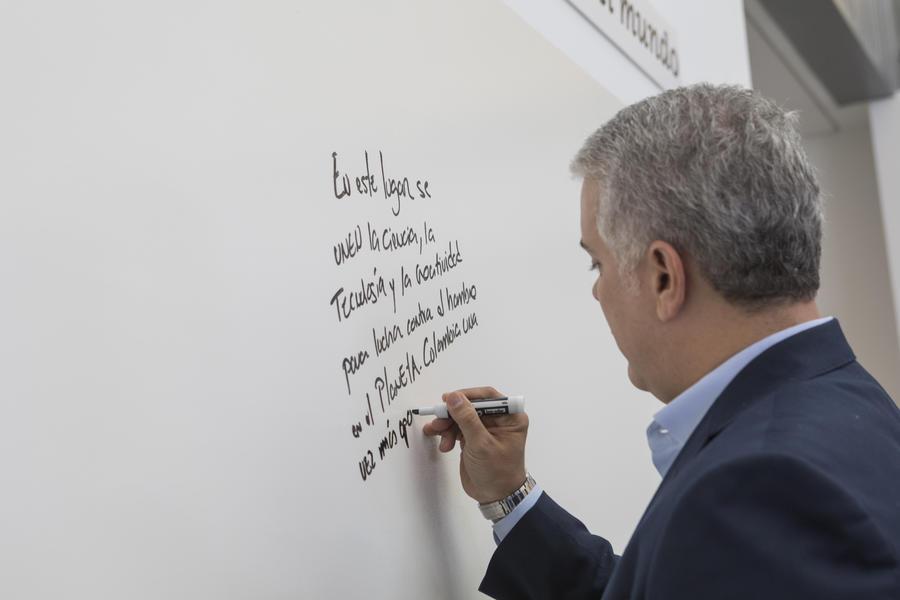
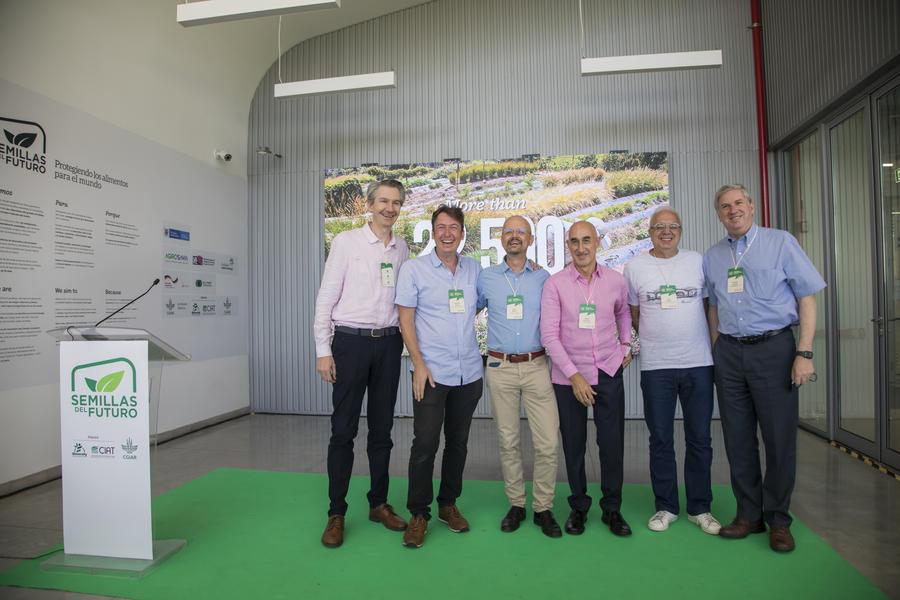
Juan Lucas Restrepo, Global Director for Partnerships & Advocacy, CGIAR / Director General Alliance of Bioversity International and CIAT, Andy Jarvis, Associate Director-General for Research, Strategy, and Innovation, Peter Wenzl, Program Leader, Genetic Resources, Jesús Quintana, Managing Director, Americas, Joe Tohme, Director, Crops for Nutrition and Health, Cristian Samper, Member, Alliance Board of Trustees
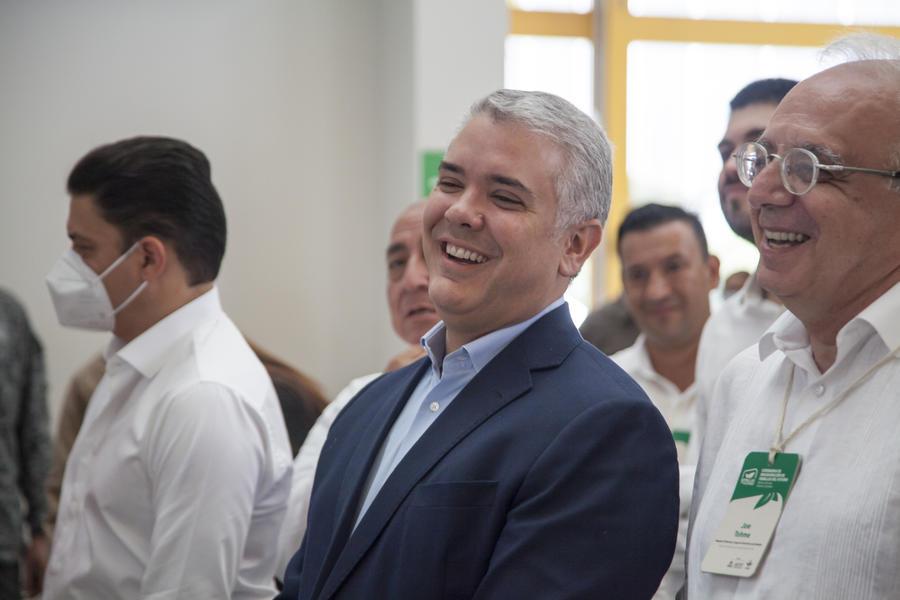
Juan Lucas Restrepo, Global Director for Partnerships & Advocacy, CGIAR / Director General Alliance of Bioversity International and CIAT
Rodolfo Zea Navarro, Minister of Agriculture and Rural Development of Colombia
Iván Duque Márquez, President of Colombia, with Joe Tohme, Director, Crops for Nutrition and Health
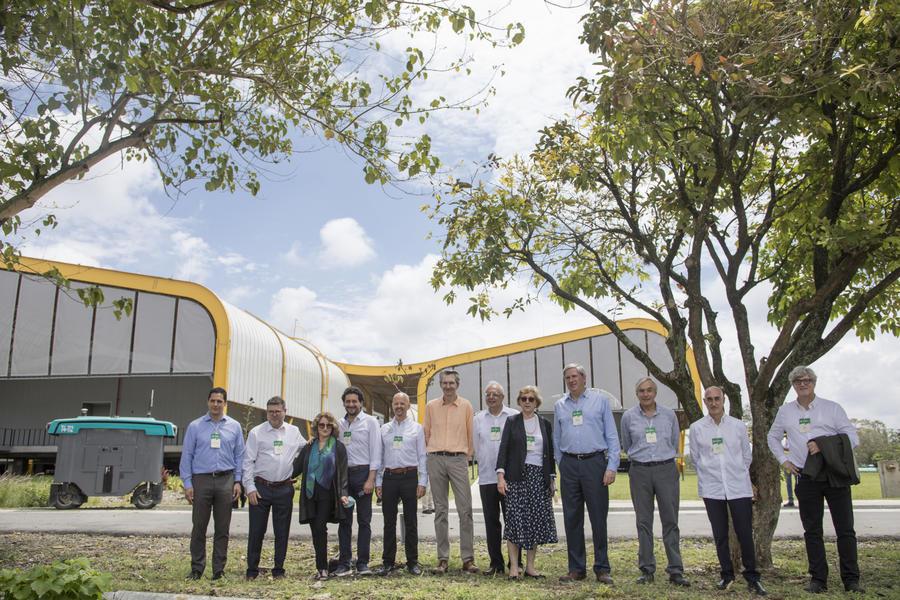
Javier Mateo-Vega, Partnerships & Communications Global Director, Patrick Caron, CGIAR System Board Member, Claudia Sadoff, Managing Director, Research Delivery and Impact, and Convener of the CGIAR Executive Management Team, Jorge Mario Díaz Luengas, Executive Director of Agrosavia, Peter Wenzl, Program Leader, Genetic Resources, Juan Lucas Restrepo, Global Director for Partnerships & Advocacy, CGIAR / Director General Alliance of Bioversity International and CIAT, Joe Tohme, Director, Crops for Nutrition and Health, Julia Marton, Chair, Alliance Board of Trustees
Cristian Samper, Member, Alliance Board of Trustees, Ruben Echeverria, Senior Advisor | Agricultural Development Bill & Melinda Gates Foundation, Jesús Quintana, Managing Director, Americas, Brian King, Leader Cgiar Big Data In Agriculture Platform
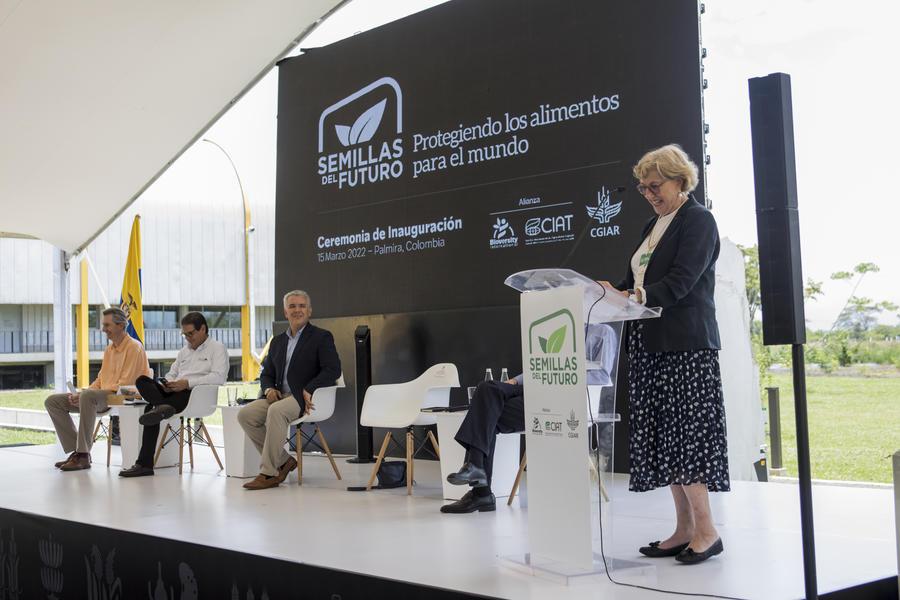
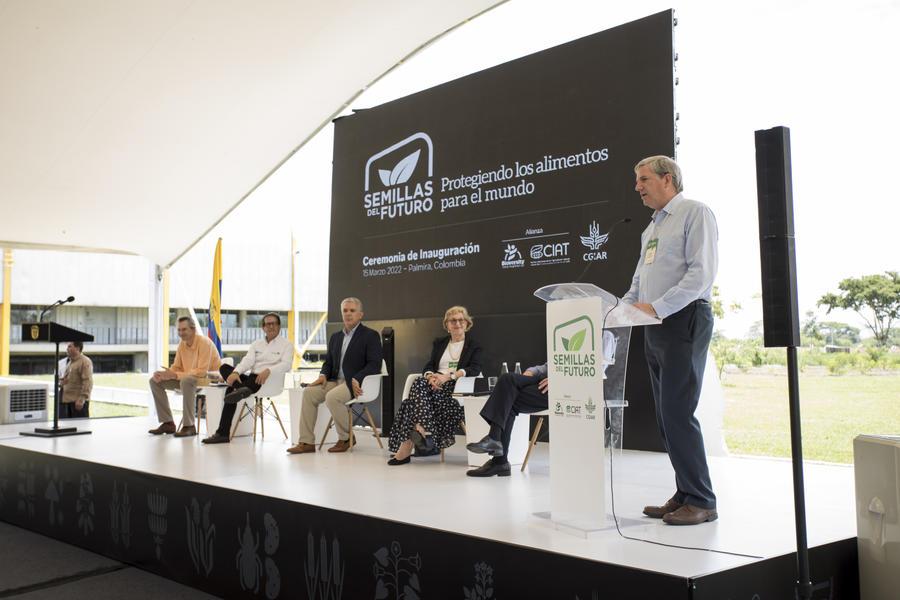
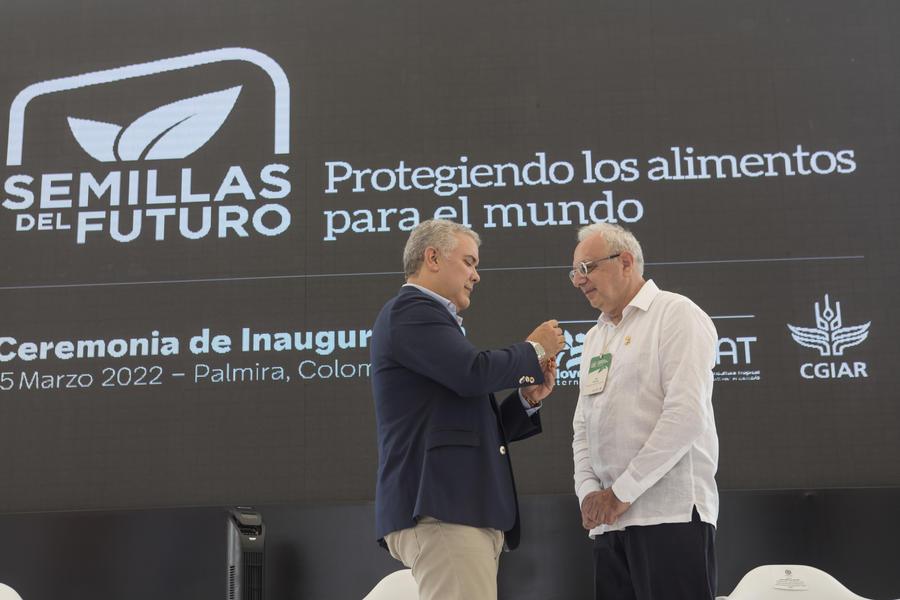
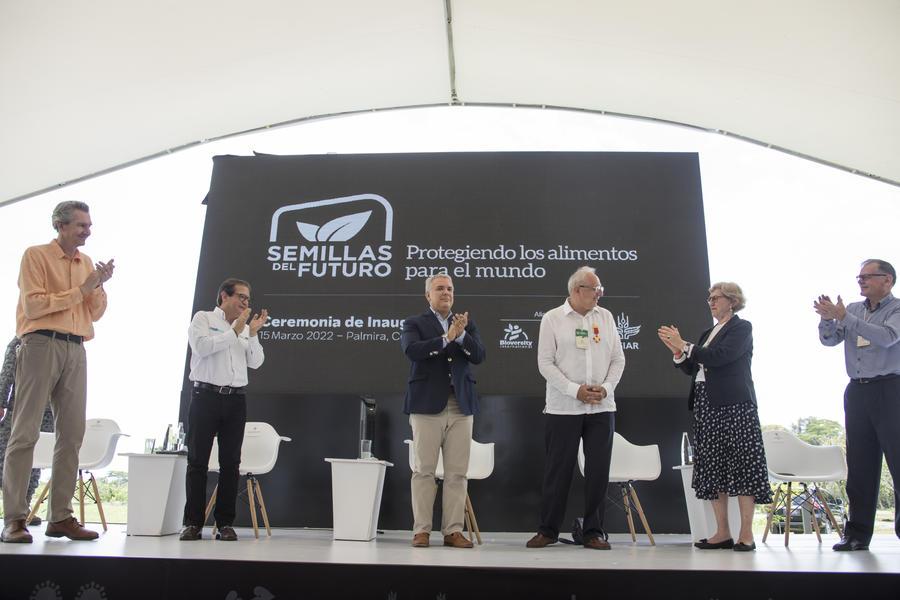
Juan Lucas Restrepo, Global Director for Partnerships & Advocacy, CGIAR / Director General Alliance of Bioversity International and CIAT, Rodolfo Zea Navarro, Minister of Agriculture and Rural Development of Colombia, Iván Duque Márquez, President of Colombia, Joe Tohme, Director, Crops for Nutrition and Health, Julia Marton, Chair, Alliance Board of Trustees, Marco Ferroni, Chair, CGIAR System Board
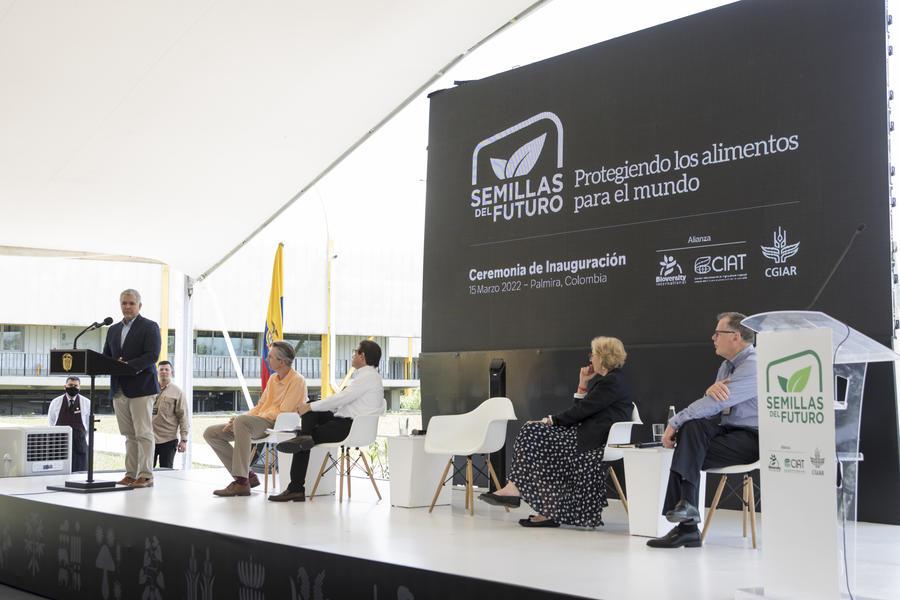
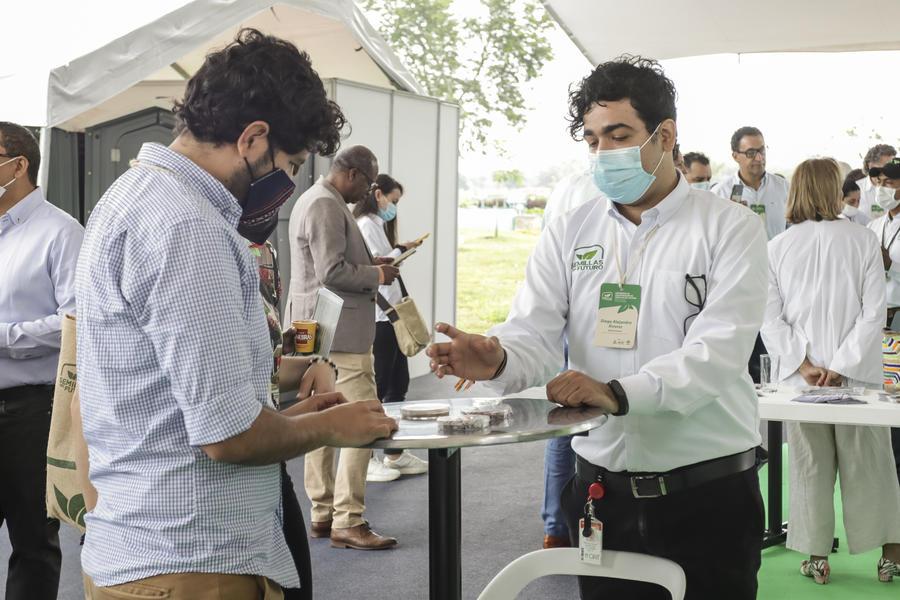
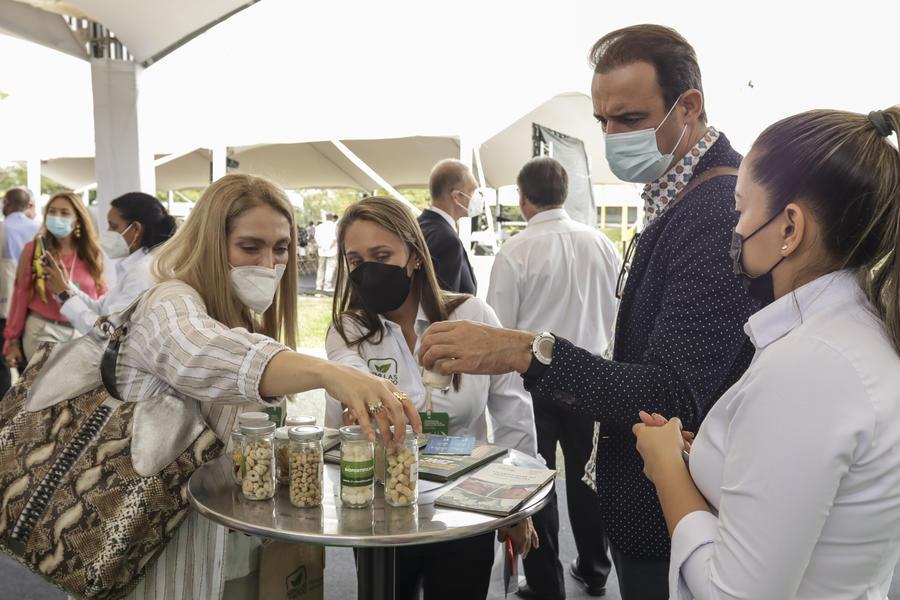
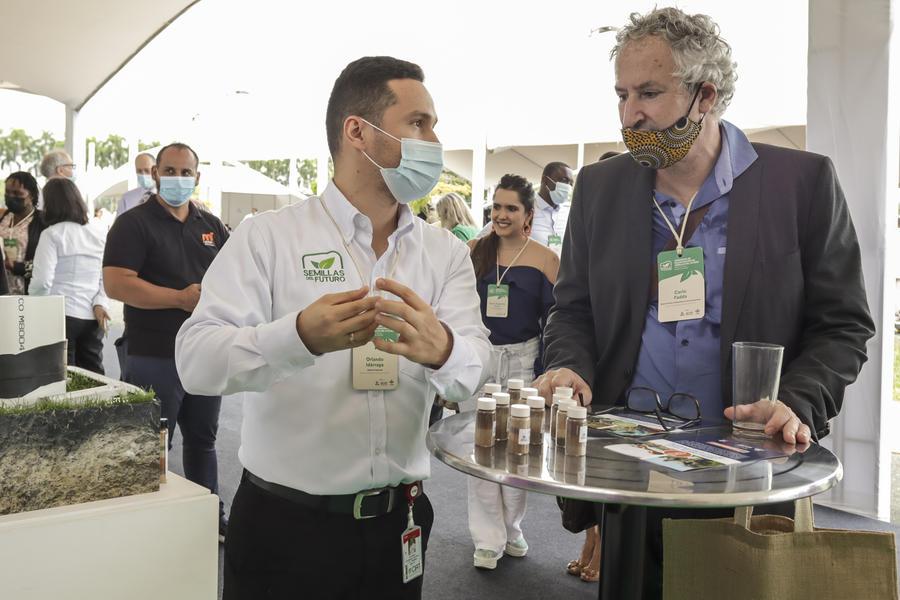
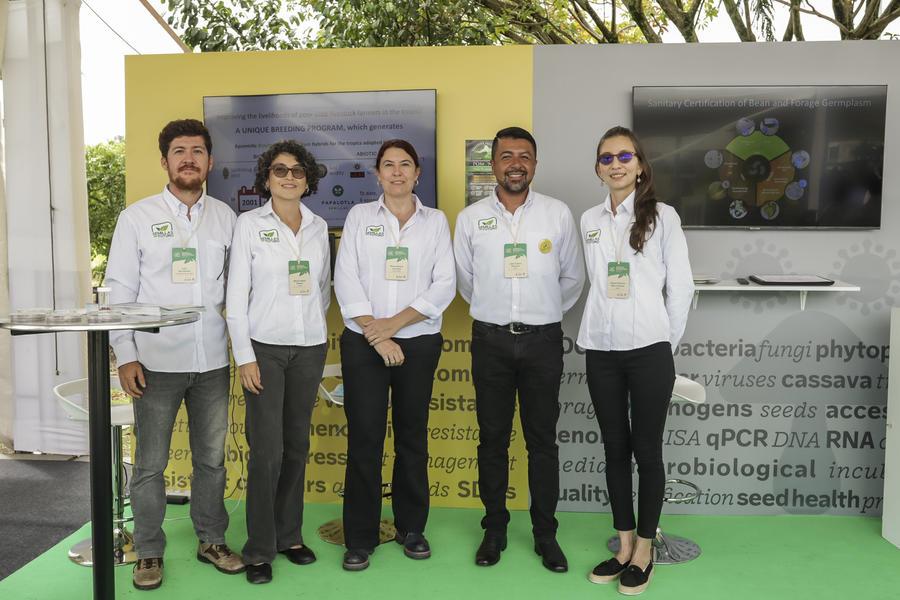
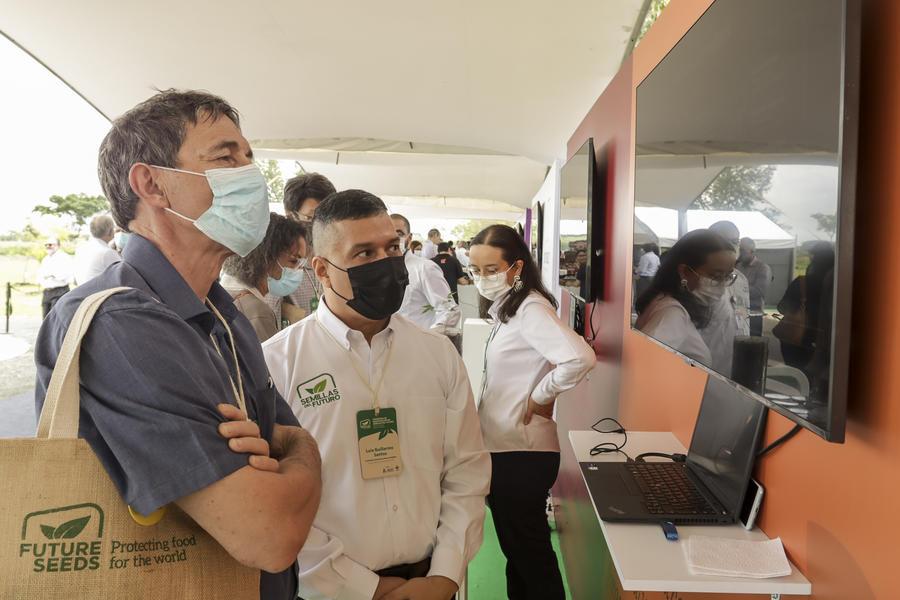
With the presence of Iván Duque Márquez, President of Colombia and Rodolfo Zea Navarro, Minister of Agriculture and Rural Development of Colombia
To date, the open-source back catalogue of crop material has allowed scientists to identify genes that have led to the development of 550 improved varieties of beans for sub-Saharan Africa, including heat-tolerant and high-iron beans, as well as cassava roots enriched with pro-vitamin A content, improving diets as well as yields.
“Genebanks play a critical role in preserving plant biodiversity and equipping crop breeders with genetic materials to adapt our food crops to climate change,” said Juan Lucas Restrepo, Director-General, Alliance of Bioversity International and CIAT and Global Director of Partnerships and Advocacy, CGIAR.
“The Future Seeds genebank will provide a yet greater resource for researchers and crop breeders to find the traits that could further climate-proof and shock-proof global food systems.”
The new facility, opened by President Duque, makes use of predictive AI models to help scientists pinpoint habitats where important crop biodiversity may exist, as well as cryopreservation for the long-term storage of crop genetic material in temperatures of -196C (-320F). It also includes a world-class digital knowledge bank where the sequence information of plant DNA can be accessed and analyzed.
Future Seeds is one of 11 genebanks run globally through the CGIAR network of agricultural research organizations and the only facility of its kind designed for education and training, with glass walls to allow visitors to see scientists at work. In addition, the Alliance also hosts several field stations around Colombia that provide optimal conditions to obtain high-quality seed free from diseases that require quarantine, and which can be distributed internationally.
“Future Seeds is not only a repository for some of the world’s most important crops. It is also an innovation hub that is constantly training and developing new ways to enhance and protect biodiversity for better diets, resilient incomes and a healthier environment,” said Marcela Santaella, Genebank Operations Manager, Alliance of Bioversity International and CIAT.
About Future Seeds
Future Seeds replaces the original genebank of the Alliance of Bioversity International and the International Center for Tropical Agriculture (CIAT) in Palmira, Colombia, which has outgrown its capacity. The new state-of-the-art, environmentally friendly facilities will not only continue to harbor the global collections of beans, cassava, and tropical forages for conservation and distribution, but will also serve as an innovation hub to accelerate crop genetic gains. Likewise, it will provide a space for collaborative encounters and engagement with the public to raise awareness of the vital role of crop diversity for healthier people and planet.
About the Alliance of Bioversity International and CIAT
The Alliance of Bioversity International and the International Center for Tropical Agriculture (CIAT) delivers research-based solutions that harness agricultural biodiversity and sustainably transform food systems to improve people’s lives. Alliance solutions address the global crises of malnutrition, climate change, biodiversity loss, and environmental degradation.
With novel partnerships, the Alliance generates evidence and mainstreams innovations to transform food systems and landscapes so that they sustain the planet, drive prosperity, and nourish people in a climate crisis.
The Alliance is part of CGIAR, a global research partnership for a food-secure future.
About CGIAR
CGIAR is a global research partnership for a food secure future dedicated to reducing poverty, enhancing food and nutrition security, and improving natural resources.
